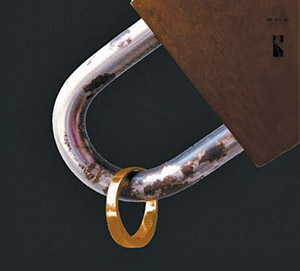
By now, everyone in the Jewish community is well aware of the recently concluded trial of the rabbis accused of using illegal pressure tactics to force Jewish men into giving their wives a Get (religious divorce) to permit the wife a religious remarriage. The anguish of the agunah, or chained woman, who would forever be bound to a loveless and often abusive marriage, resonated with the news media throughout the United States. The portrayal of Jewish halacha as potentially adverse to nationally accepted legal principles brings a strong level of discomfort to Jewish matrimonial attorneys such as myself who are proud of the rich legal heritage contained in our religious teachings.
The simple fact is that in New Jersey, the Courts cannot force the husband to give the wife a Get. Even if the parties are civilly divorced and they agree to cooperate to obtain a Get, if the husband refuses to thereafter cooperate, the Court cannot force final cooperation. The Court can make a finding that the husband failed to cooperate with the terms of the divorce settlement, but cannot do much more.
In New York, attempts have been made by way of legislation to require cooperation in obtaining a Get. Section 253 of the New York Domestic Relations Law is titled “Removal of Barriers.” Even though it is non-denominational in language, the clear intent at the time of creation (around 30 years ago) was related to the agunah quandary. In essence, the law requires the individual filing a Complaint for Divorce to “remove any barrier to the [other spouse’s] remarriage following the annulment or divorce.” This law also applies to the spouse who did not file the complaint, but who agrees that the parties should be divorced. The “barrier” referred to is clearly intended to be the granting of the Get.
But the problem with the law is that while on its face it seems powerful, in a deeper analysis it “preaches to the congregation” while ignoring the intended creator of the barrier to remarriage. Simply put, the spouse creating the agunah problem is not the one who is likely to file the complaint for divorce. The recalcitrant spouse is most likely to do nothing. He doesn’t want the divorce. He will not file for civil divorce and he will not agree to the civil divorce. The New York law does not cover this spouse and so the law is ineffective against the husband for whom the Get issue takes priority. Further law was added in 2010 to give the Courts some extra leeway in financially pressuring the non-compliant husband, but that same stubborn husband is still not likely to succumb to the Court’s civil pressures.
A partial solution is the halachic premarital agreement. This solution has been frequently utilized for the past 20 years. Many Orthodox rabbis have come on board to require specific language in the agreement, without which the rabbi will not marry the couple. First, there is an agreement that the couple in a dissolving marriage must appear before a Beth Din (Jewish Court of law). Second, if the man refuses to provide a Get to the woman, he must continue to support her (often at the rate of $150 per day) until the Get is given. Of course, it is expected that except in the most exceptional circumstances, the man will also be ordered by the Beth Din to give his wife a Get.
The above premarital agreement is considered enforceable under New York law and most likely under New Jersey law, since premarital agreements are presumably enforceable. The key is the cooperation of rabbis who perform weddings. Today, many rabbis will refuse to marry a couple unless the above agreement is signed. The cooperation of more rabbis is needed if further inroads will be made to ensure that the occurrence of being an agunah will be lessened, even if not entirely eradicated.
Mr. Kornitzer is a partner at the law firm of Pashman Stein and the Chair of its Family Law Department. His practice focuses on all aspects of family law including divorce litigation, mediation, arbitration, post-judgment litigation, custody, relocation, domestic violence, premarital agreements, assets protection agreements, grandparents rights and spousal and child support. Mr. Kornitzer can be reached at 201-488-8200 or at [email protected].
By Robert B. Kornitzer, Esq.









